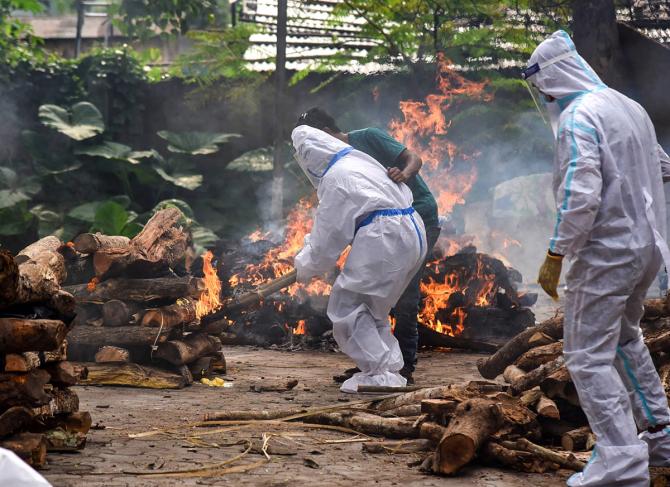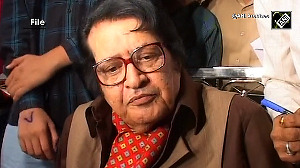The Supreme Court on Wednesday rejected the Centre's stand that a provision of the Disaster Management Act casting an obligation on the National Disaster Management Authority to pay ex gratia compensation in the event of death is discretionary and not directory, saying this would defeat the "very object and purpose" of the law.

The Centre had pleaded that the word "shall" used section 12 of the DMA on payment of ex-gratia compensation in the event of death during disaster be read as "may".
The important observation on the interpretation of the provision came in a judgement by which the top court directed National Disaster Management Authority to issue guidelines in six weeks for ex gratia compensation to families of those who died of Covid.
Section 12 of the DMA, 2005 provides for guidelines for minimum standards of relief and one of the parts says the National Authority shall recommend guidelines for the minimum standards of relief to be provided to persons affected by disaster, "which shall include ex gratia assistance on account of loss of life as also assistance on account of damage to houses and for restoration of means of livelihood; (iv) such other relief as may be necessary".
The Centre had pleaded that the word "shall" used in Section 12 may be read as "may" and it should be read as "discretionary" and shall not be construed as "mandatory" and there should not be a literal interpretation of the provision as the intent of the legislation should be kept in mind.
A bench of justices Ashok Bhushan and M R Shah analysed the provisions of the Act and said it has been "enacted for prevention and mitigation effects of disasters and for undertaking a holistic, coordinated and prompt response to any disaster situation".
The law is on disaster management to provide for requisite institutional mechanisms for drawing up and monitoring the implementation of the disaster management plans, ensuring measures by various wings of the government.
"To construe the word 'shall' as 'may' and as directory/discretionary, the very object and purpose of the Act will be defeated. The word 'shall' used twice in Section 12 significantly imposes a duty cast upon the National Authority to issue guidelines for the minimum standards of relief which shall include ex gratia assistance on account of loss of life as also assistance on account of damage to houses and for restoration of means of livelihood," it said.
It said in the provision, the word "shall" is used twice and the intent of the legislature by using the word "shall" twice is very clear.
Once, it is held that the word "shall" have to be read as "shall" then it casts a mandatory statutory duty upon the NDMA to recommend guidelines for the minimum standards of relief which shall include ex gratia assistance on account of loss of life.
"By not recommending any guidelines for ex gratia assistance on account of loss of life due to COVID-19 pandemic... it can be said that the National Authority has failed to perform its statutory duty cast under Section 12 and therefore a writ of mandamus is to be issued to the National Authority to recommend appropriate guidelines for ex gratia assistance on account of loss of life due to COVID-19...," it said.
The top court's verdict came on two separate pleas filed by lawyers Reepak Kansal and Gaurav Kumar Bansal seeking directions to the Centre and the states to provide Rs 4 lakh compensation to the families of coronavirus victims as provisioned under the Act.











 © 2025
© 2025